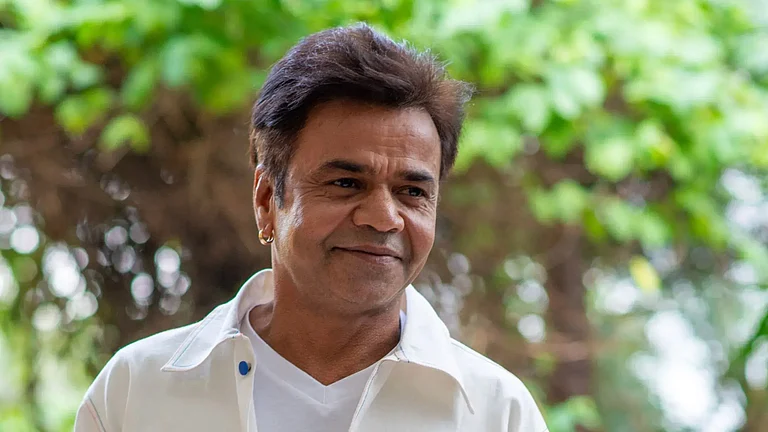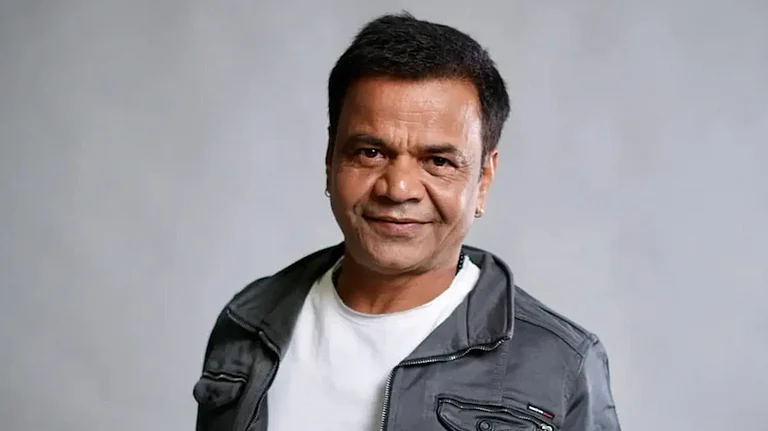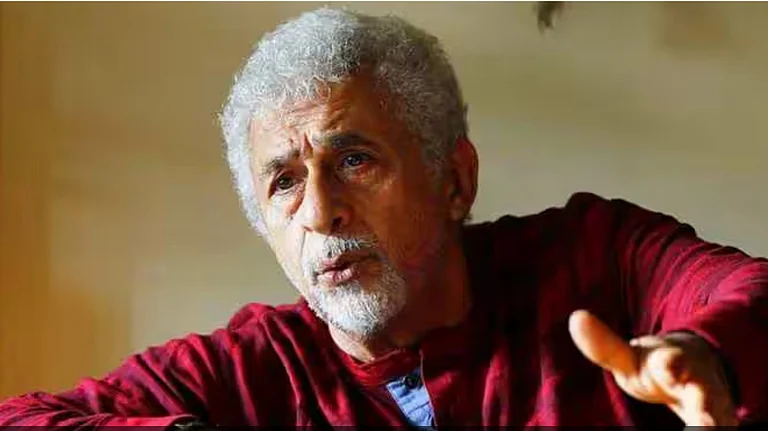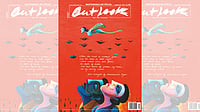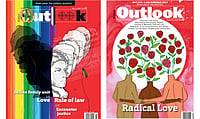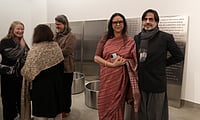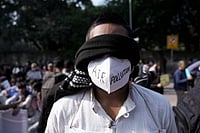
Siddiqua Begum Khan slams Bollywood film Haq as factually false and deeply painful, despite its “inspired by Shah Bano case” marketing and routine fictional disclaimer.
Madhya Pradesh High Court rejected her plea for a stay, ruling privacy and publicity rights end at death – a verdict she calls unjust and hurtful to living families.
She warns the movie risks permanently distorting her mother’s legacy of graceful, Quran-grounded struggle into commercial sensationalism for younger audiences.
In Indian legal and social history, few cases are as well-known as Mohd. Ahmed Khan v. Shah Bano Begum (1985). Shah Bano, a Muslim woman and mother of five, was divorced after 43 years of marriage and left with just ₹200 a month. She fought for fair maintenance all the way to the Supreme Court—and won. The Court ruled she was entitled to maintenance beyond the iddat period under Section 125 of the CrPC.
The judgment sparked a national debate. It increased calls for a Uniform Civil Code, led the Rajiv Gandhi government to pass the Muslim Women (Protection of Rights on Divorce) Act, 1986, and made Shah Bano a symbol of Muslim women’s rights. However, she later publicly distanced herself from the verdict due to social pressure.
Forty years later, her story is again in the spotlight—this time not in Parliament, but in a courtroom in Indore and in a new Bollywood film.
On November 7, 2025, the movie Haq was released across India. Starring Yami Gautam as Shazia Bano and Emraan Hashmi as her estranged husband, the film is directed by Suparn S. Varma and produced by Applause Entertainment and Jio Studios. Promoted as “inspired by true events,” the film repeatedly references the Shah Bano case in its teaser, trailer, and marketing.
Although the film carries a disclaimer that all characters and events are fictional, its story closely mirrors the events of 1985.
Shah Bano’s daughter and only surviving legal heir, Siddiqua Begum Khan, said watching her mother’s life turned into what she called a “sensationalised, factually incorrect commercial product” was deeply painful. On 4 November 2025, just three days before the film’s release, she went to the Madhya Pradesh High Court, seeking an urgent stay on the film and cancellation of its CBFC certificate.
She argued that the film violated her mother’s dignity, invaded the family’s privacy, and used a deeply personal chapter of their lives without permission.
But the same day, after hearing both sides, Justice Pranay Verma dismissed her petition. He ruled that the right to privacy and publicity rights do not survive a person’s death and cannot be inherited by family.
The film was released as scheduled.
The legal battle may be over, but Siddiqua’s pain has not ended. In this interview with Outlook, she speaks for the first time since the court’s decision and the film’s release.
What’s your view on the film Haq and the way it shows your mother, Shah Bano’s, personal life?
The film Haq has used my mother’s identity and the fame associated with her name, but the events shown in the movie are factually incorrect and do not reflect her real life or our family’s truth. My mother, Shah Bano, deserves to be remembered for her courage and her historic legal battle, not through distorted portrayals created for cinematic effect.
Have you or any of your family members watched the movie? If yes, how far does it seem from reality?
Yes, my son and other family members have watched the movie. The events shown in the film are far removed from the true facts. The storyline and incidents portrayed do not match our lived experiences and are not an accurate representation of what actually happened in our family’s life.
For an audience that does not subscribe to news, do you think the version pursued in the movie can end up setting the tone for the new generation watching it, who can mistake it for the real version of events?
Yes, people who do not read or follow the news may easily believe that whatever is shown in the film is true. This is exactly why I oppose the movie. It presents a distorted version of events, and there is a real risk that the younger generation will accept this inaccurate portrayal as the truth about my mother and our family.
Do you think the actions you have taken to combat the release of the film will yield any positive results?
Yes, I believe our actions will bring positive results. Because of our efforts, you and several sincere journalists have reached out to us to understand and present the real events. This itself is a meaningful step toward correcting the narrative and ensuring that the truth about my mother is heard.
The court dismissed your petition, saying the right to privacy ends with a person’s death. Do you agree with that?
Absolutely not. I firmly believe that a person’s death does not end their right to privacy. A person’s life, dignity, and actions continue to affect their family both during their lifetime and long after their passing. Our own family is a clear example—decades after my mother passed away, we are still being deeply affected by inaccurate portrayals of her life. Therefore, her privacy and dignity must continue to be respected even after her death.
Your mother set the benchmark for Muslim women’s rights and equality in the country’s history. Do you think this movie tries to harm or twist that legacy in any way?
Yes, the movie does harm and twist my mother’s legacy. My mother fought her battle with dignity, grace, and always within the light of the Qur’an and Hadith. Her struggle was grounded in truth and justice, not sensationalism. By presenting distorted events, the film misrepresents her principles and weakens the true message of her historic fight for Muslim women’s rights.
Beyond the social narrative, do you think your mother’s fight for justice and equality is being reduced to a commercial profit that can be exacted from the movie’s success?
Yes. My mother’s sincere fight for justice and equality is being reduced to a commercial product. Instead of honouring her real struggle, the film uses her name and legacy for profit, without respecting the truth of her life or the principles she stood for.
How did you react to triple talaq being struck down in 2017, especially as the daughter of a person who first fought that battle?
According to the Qur’an and Hadith, there is no concept of instant triple talaq. Some uneducated or misinformed people created this misconception. If one reads the actual guidelines on talaq, everything is clearly defined and the process is structured, gradual, and meant to protect both husband and wife.
Therefore, when triple talaq was struck down in 2017, I felt it was a step that aligned with the true teachings of Islam. The law today reflects the guidance already given in the Qur’an, which my mother always believed in and stood for.
The film opens with a disclaimer claiming it’s fictional. Do you think that’s enough to protect your mother’s dignity?
No, that disclaimer is not enough. Everyone knows it is a routine disclaimer shown in almost every film, and most people neither read it nor pay attention to it. If the filmmakers truly believed it was fictional, then why did they openly say that the film is inspired by the case of Mohammad Ahmad Khan vs. Shah Bano? By using my mother’s name and her historic case, they clearly connect the movie to real events, and a standard disclaimer cannot protect her dignity from the wrong and misleading portrayal shown on screen.
What message would you like to give filmmakers/producers who hide behind “creative freedom” while using real people’s lives and struggles for their stories?
Filmmakers often use “creative freedom” as a shield while taking real people’s struggles and turning them into commercial stories. In doing so, they play with the emotions of the families who lived through those events. Real lives, real pain, and real histories should not be twisted for profit. If they choose to portray someone’s true story, they must do it with honesty, responsibility, and respect for the dignity of the person and their family.








